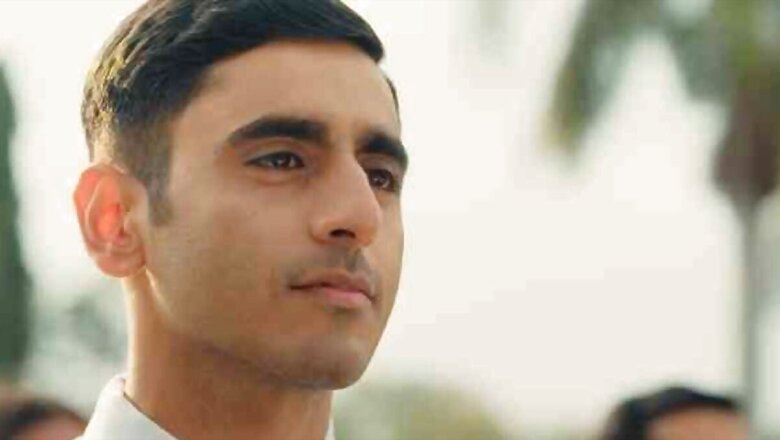
views
Danish Sood is a rising star in Indian cinema and music, known for his versatility and passion. His latest project, ‘Naam Namak Nishan’, which was released on August 14th on Amazon Mini, showcases him in the role of a national-level skeet rifle shooter. Through the film, Danish had the unique opportunity to immerse himself in the lives of army cadets, offering him a firsthand glimpse into their challenges and sacrifices.
In this exclusive interview with News18 Showsha, Danish Sood, known for his versatile performances in films like ‘Gulmohar’ and Netflix’s ‘CAT’, opens up about his journey as an actor and singer-songwriter. From tackling roles that demand intense emotional depth to creating music that spans multiple genres, Danish reflects on the challenges and triumphs of his career. He shares insights into his preparation for roles, the impact of working with industry stalwarts, and his aspirations for the future.
Here are the excerpts:
Naam Namak Nishan’ is a project where you portray a national-level skeet rifle shooter. Can you share some of the most challenging aspects of preparing for this role, especially given your interactions with army cadets?
We had the opportunity to interact with many cadets at the OTA, which was invaluable in preparing for the role of Gurbaaz. I gained deep insights into the intense mental, physical, and emotional challenges that cadets face while training to become officers. The most profound realization for me was the selflessness required to serve the country above all else. It took me some time to truly grasp the depth of this commitment, but it left a lasting impact on me.
Your role in ‘CAT’ on Netflix received critical acclaim. What attracted you to this project, and how did you prepare to embody your character?
Sunny from ‘CAT’ showcased the darker aspects of life, portraying how growing up in underprivileged circumstances can lead someone to turn to crime as a means of survival. In contrast, Gurbaaz, who also came from a similar impoverished background, chose sports as his way out of that cycle. Gurbaaz was meant to be funny, yet beneath his humor lay layers of conflict and trauma. I’ve always wanted to play a character that allows me to explore my comedic side, someone with no inhibitions, who lives without constraints and does whatever he feels like. I was captivated by Gurbaaz’s free-spirited and fluid nature, both in personality and physicality. It was this freedom that truly intrigued me about him.
You’ve worked with renowned directors like Balwinder Singh Janjua, Sudhir Mishra, and Bejoy Nambiar. How does your approach change when working with different directors, and what have you learned from these experiences?
I’ve been really fortunate to work with such talented people who are all passionate about making great cinema, and that’s something I deeply admire. My approach doesn’t change much, to be honest. I always do my own research before starting, and when we get time to discuss, I focus on understanding their perspectives as well. The best part is that everyone I’ve worked with has been so collaborative, which gives me the freedom to explore my own methods while also embracing theirs. It’s amazing to have that kind of creative liberty on set, and I’ve been lucky to work with people who are even more open and supportive than I could have imagined.
You’ve been part of international projects like ‘Tomorrow You Will Be Dead.’ How does working on a global platform differ from the Indian film industry, and what are some of the challenges you faced?
‘TYWBD’ was an incredibly fun project to work on. The team came to India already highly prepared, even before we joined. They were very collaborative, enthusiastic, and had a clear vision. The planning was so meticulous that, despite the tight schedules, everything ran smoothly, allowing us to take our time where needed. Time management was crucial on that set, given the hectic timelines. We had complete freedom to explore our characters, with the added bonus of workshops and dialect coaches. The effort they put into supporting us made us feel as important as the protagonists, and I have a lot of respect for that.
In ‘Gulmohar,’ you were part of a project that was both critically acclaimed and widely appreciated by audiences. It also recently won big at the National Film Awards. What was the most memorable moment for you during the making of this film?
We were like a family on set, even though I wasn’t technically part of the “family” in the story. My character is the one who gets his heart broken, but thanks to Rahul, I was made to feel like I belonged. Rahul is an incredibly generous director who ensured that everyone interacted and lived like a real family. He gives you the space to explore your ideas, subtly guiding you without ever taking credit for it. It was such a wonderful experience, and I was always excited to be on set.
I interviewed Manoj Bajpayee and Rahul Chittella the other day and they shared how the entire team of Gulmohar became like a big family. How was your experience bonding with stalwarts like Manoj Bajpayee Ji and Sharmila Tagore Ji?
I didn’t have much time to interact with Sharmila Ji and Manoj Ji on set, but we connected more after the release. Manoj Ji and I actually went to the same college, so we ended up talking about our college days and his experiences back then. The sense of family among the cast and crew remained strong before, during, and even after the release, making it a truly wholesome experience.
How do you approach developing a character that is so different from your personal experiences, like a national-level shooter or an individual involved in intense drama?
I begin by focusing on what makes the character believable, adding unique attributes and habits that are inherently theirs. The script provides a lot of guidance, which helps in further shaping the character. For instance, as a national skeet rifle champion, I wanted to portray him as athletic. I made additional trips to the gym, training specifically to build a physique capable of handling rifles and enduring long training sessions. To get into the essence of his life, I did some rifle training in Pune and spent time understanding why skeet shooting was his passion, even interacting with fellow national-level shooters. My preparation also included training in swimming, boxing, and basketball to round out his athletic persona.
Can you talk about a time when you had to step out of your comfort zone for a role? How did that experience shape you as an actor?
Playing Sunny, Samar, and Gurbaaz pushed me out of my comfort zone in different ways. I want the audience to relate to each of them, even if just in small ways. I aim for them to feel a mix of hatred and empathy towards my characters. When it came to Samar, I was particularly focused on making him real, avoiding the stereotypical portrayals that characters from his community often get. We underwent intimacy training, which helped me deepen my understanding of him. Acting always opens you up, liberates you, and you end up learning so much about life in the process.
Your acting roles often explore complex and intense themes. How do you mentally prepare yourself to enter such emotional spaces, and how do you unwind after filming?
I don’t think it’s entirely about detachment. When we’re in the middle of a scene, we inevitably feel the hurt or complex emotions our characters experience, and those feelings can linger even after the sequence is over. It’s important to find a balance, though. Personally, I like to unwind by enjoying some good food, chatting with friends about random topics, and reminding myself that the character and I are separate entities. That said, it’s not something that happens instantly. It’s a process, and we need to take care of ourselves along the way.
As a singer-songwriter, your music spans several genres, including R&B and neo-soul. How do you balance your music career with your acting projects?
I feel like acting naturally led me deeper into the music business, so initially, it wasn’t too difficult to manage both—at least until this year. I often joke about it now, saying, “Today I’m an actor, and tomorrow I’ll be a musician.” Finding the right balance between the two is important, but I’m still figuring that part out.
‘Jaanu Na’ for ‘Mismatched Season 2’ and ‘Bikhar Gaya’ for ‘Naam Namak Nishan’ showcase your versatility as a musician. Can you walk us through your creative process when composing these songs?
I usually begin by playing my guitar and humming something spontaneous. From there, I start writing whatever comes to mind. As we develop ideas, we often face a specific situation or mood for each song. We then jam with the director, experimenting with different concepts until we create something that aligns with both the show and our vision.
You’ve collaborated with artists like Lisa Mishra. How do these collaborations influence your own music style and creative direction?
I started collaborating with her for her song and I have always wanted to because I really liked her music. It’s inspiring to work with different artists and there’s always so much we learn while we collaborate with them. It helps you to work with new sounds and incorporate elements that you hadn’t heard before.
Given your background in music and acting, do you find these two art forms influencing each other in your work? For example, does your acting inform your music or vice versa? And how do you strike a balance between the two disciplines?
I believe Bollywood is a blend of cinema and music, with songs often reflecting dreams, moods, and sometimes larger narratives. Music can shape your taste in cinema, and vice versa. I create playlists for my characters to help differentiate them from myself, which can aid in my performance. As I mentioned, finding the right balance between acting and music will hopefully come with time, and I’m looking forward to figuring that out.
What upcoming projects are you most excited about, both in acting and music? Can you share any details?
I can’t reveal too much right now, but I’ve done a song for Call me Bae. There’s also a show and an anthology film that I’m excited about, and I hope they’ll be released soon. Additionally, I’ll be releasing more independent singles later this year, and there might be a new project starting soon.
Looking back at your journey so far, what advice would you give to young actors and musicians trying to break into the industry?
Patience is key, and persistence is crucial. Time is a powerful factor, and although it demands a lot from us, it’s the only tool that truly helps. In the meantime, focus on honing your craft and continuously seek out opportunities. Even when opportunities seem scarce, either create your own or keep working on personal growth. It’s important not to be too hard on yourself. The journey is long, and you need to be mentally, emotionally, and physically prepared for all the challenges that come your way.
How do you see yourself evolving as an artist in the next few years? Are there any new areas you’d like to explore?
At the moment, I’d like people to see more of me as an actor. I feel there are many characters I want to explore and a lot I want to accomplish in that realm. I also want my music to be heard more, and there’s plenty I want to delve into after that. But for now, my focus is on pursuing more acting opportunities and expanding my work in that area.
Your work often delves into themes of dedication and selflessness, especially evident in ‘Naam Namak Nishan.’ How have these themes impacted you personally?
I strongly believe in dedication as a key factor for thriving in such a competitive field. Commitment to the craft often demands a lot from us, including selflessness. We have to understand that while we can put our best into our work, we can’t always control the final outcome. Sometimes our work receives appreciation, and sometimes it doesn’t, but maintaining our dedication to the process is what truly matters.
What keeps you grounded and inspired amidst the demands of your acting and music careers?
I feel fortunate to have the opportunity to explore such creative fields professionally. Interacting with artists from diverse backgrounds is both grounding and inspiring. Their insights into their journeys and the unique perspectives they bring to the table help me stay focused and motivated toward my own goals. I consider this a blessing and hope to continue doing more in this space.












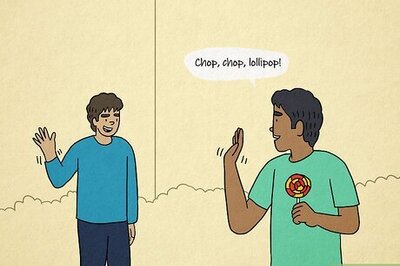
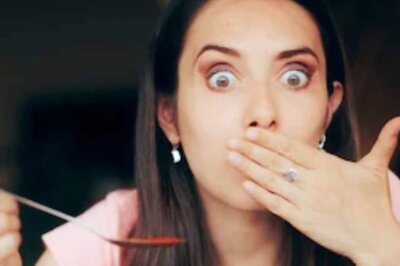
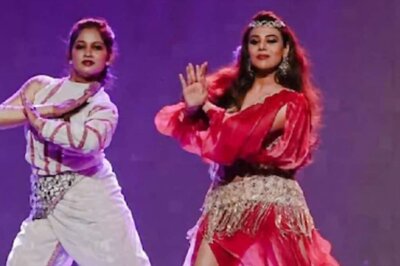
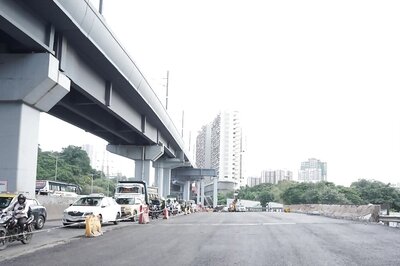
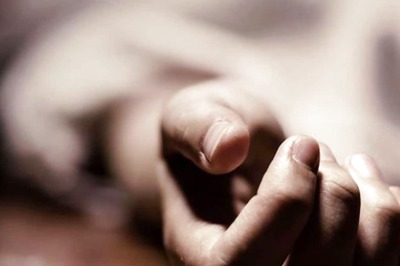

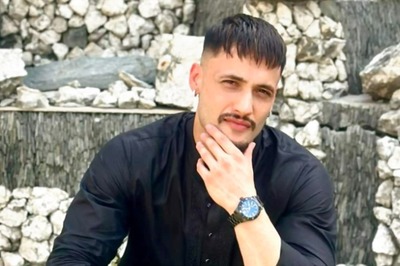
Comments
0 comment